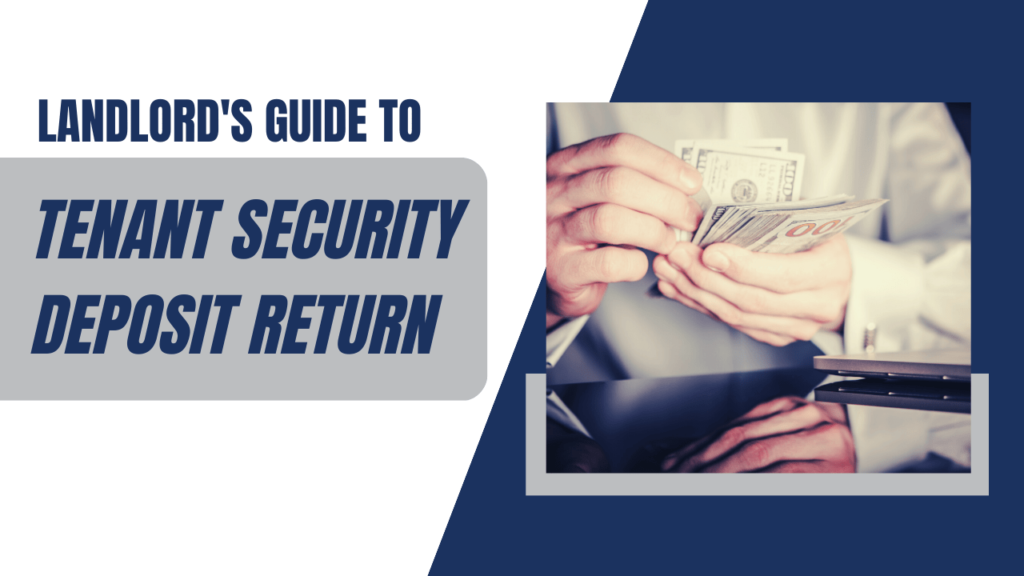
One of the first things you’ll do after approving a tenant for your Roanoke rental property is collect a security deposit and other move-in funds. This is an essential part of the rental process. A security deposit is necessary to protect you and your property against a loss of rent if those tenants break the lease. It also helps you pay for any damage that goes beyond normal wear and tear after your tenant moves out.
Always collect this deposit before signing the lease and handing over the keys.
The security deposit is not your money. It remains the tenant’s money. However, you can see it as an extra layer of financial protection that you can use later if it becomes necessary. Good tenants will want to receive their entire deposit back, so they’ll be careful about keeping the home clean and well-maintained.
Virginia has statewide laws which addresses security deposits, specifically what they can be used for and when they need to be returned.
In our experience as Roanoke property managers, most tenant and landlord disputes arise because of a disagreement over the security deposit. We think it’s important that you know how to handle security deposits and how you can avoid conflicts with your residents and potential court cases.
What You Can Collect as a Roanoke Security Deposit
By law, you are permitted to charge a security deposit that’s no more than the equivalent of two months’ rent. So, if your monthly rent is $1,500, your security deposit cannot be more than $3,000.
Alternatively, a landlord may require the tenant to have damage insurance coverage (or a combination of insurance and a deposit) in an amount no greater than two months’ of rent.
Just because you can collect up to that amount doesn’t mean you should. A lot of different rental properties offer some attractive incentives to tenants. Apartment communities, for example, may offer a $300 security deposit to draw tenants to their communities. If the market is competitive and you’re working hard to attract good tenants, you might want to settle for collecting a security deposit that’s simply the equivalent of one month.
Interest-Bearing Accounts are Not Necessary in Virginia
You’re not required to hold the security deposit in an interest-bearing account, nor are you required to pay interest on the deposit that you’re holding.
Once you collect the security deposit, you’ll need to decide where to keep it. We do not recommend that you simply deposit it into your own personal checking or savings account until the end of the lease. Co-mingling these funds can lead to confusion and unintentional mistakes. Open a separate account where you’ll hold the deposit.
In your lease agreement, provide your tenants with information about the deposit, including which bank is holding it, how much was collected, and what they’ll need to do at the end of the lease term to receive a full refund of that deposit.
Virginia landlords must keep security deposit records for tenants. These records must itemize any deductions that have been made from the security deposit over the last two years.
How to Apply the Security Deposit
When the tenant moves out, you’ll conduct an inspection to determine whether any damage has been left behind and can be paid for out of the deposit. You do need to permit your tenants to be at the inspection if they want to be there.
Security deposit deductions can become difficult. As the owner of the rental property, you need to understand what you can charge the deposit for and what you cannot charge the deposit for. Sometimes, the line seems very thin.
Here are some of the things you can and cannot use a Roanoke security deposit for:
Reasons to Withhold Money from a Security Deposit
- Unpaid rent
If a tenant has missed a month or more of paying rent, and they never really caught up, you can use the security deposit to bring the account current after the tenant leaves. Perhaps they didn’t pay the full rental amount for a few months, but then continued to pay rent on time and in full as normal. You can apply the security deposit to those months that were short after your tenants move out.
This should never be offered to tenants as a way to manage their rental payments. The deposit isn’t mean to cover rent during the tenancy. Don’t let tenants use the security deposit as the last month’s rent. You want to collect rent as you normally do. The deposit isn’t meant to replace it; you can simply use it at the end of the lease period to pay for any past due rents.
Using the deposit to pay for rent when tenants break the lease and leave the property suddenly and without notice is also permissible. The deposit, in this case, can make up for the income you’ve lost. However, work quickly to find a new tenant so you don’t have to worry about months and months of vacancy loss. The security deposit will only cover you for so long.
- Outstanding utility bills
Perhaps when you go to turn the electricity on in your name, you discover there’s an outstanding balance on the property’s account. If a tenant moves out and the utility accounts are overdue, you might have a hard time getting them to catch up with those electric or water bills. You can use the tenant’s security deposit to pay for any overdue or unpaid utility bills.
- Cleaning fees
Your standards for cleaning might be higher than those of your tenant. This is why we recommend you be specific about what kind of cleaning you expect before a tenant vacates. You can expect tenants to return the property in a condition that’s as clean as it was when they moved in. That’s the point of the move-in inspection; to document the present condition of the property and establish how it should look when possession is returned to the owner.
If the tenants move out and you find that there’s trash left behind or not everything has been moved out, you will have to pay to make the rental home appealing to new tenants. The security deposit can help cover any cleaning costs that should have been your tenant’s responsibility.
- Property damage caused by tenants or tenant guests
Property damage can be caused by abuse, misuse, and neglect of the property. It clearly goes beyond wear and tear. While small nail holes cannot be deducted, large holes in the walls or floors can absolutely be deducted from the security deposit. Scratches on the floor or stains in the carpet are examples of damage. If a refrigerator no longer works because a child was hanging on the door, that’s a repair you can deduct from the deposit.
Don’t Deduct for Normal Wear and Tear
Normal wear and tear is your responsibility as a landlord. You cannot charge a tenant for those small nail holes in a wall where paintings or pictures were hung. You cannot charge for the scuff marks on the floor or against the wall where furniture sat for a year or longer. Caulk in the tiles is likely to chip away or grow mold and you’ll have to deal with that at your own expense.
Returning a Roanoke Security Deposit
 The security deposit law in Roanoke and throughout Virginia states that landlords, owners, and property managers must return the deposit to their tenants within 45 days from lease termination, or when those tenants leave the property.
The security deposit law in Roanoke and throughout Virginia states that landlords, owners, and property managers must return the deposit to their tenants within 45 days from lease termination, or when those tenants leave the property.
Hopefully, you have had excellent and responsible tenants who took care of the property and left it looking great. In that case, you can return the full deposit and it likely won’t take you 45 days to do it. Before your tenants leave, ask for a forwarding address. Send the deposit back as quickly as possible.
You may have some deductions to make from the deposit, however. In this case, you’ll have to provide a written statement and itemized list of what you’re deducting and why. If you fail to send this accompanying statement with a partial refund or no refund, you forfeit your claim to the amount of the security deposit you were trying to withhold.
Always return the security deposit to your departing Roanoke tenants on time. Otherwise, your tenants can take you to court, where you may be ordered to refund the entire deposit and pay a penalty up to three times the amount you withheld. Plus, you could face additional court costs and legal fees.
Protect yourself by carefully documenting the condition of the property before the tenant moves in and after the tenant moves out. This will clearly demonstrate what things looked like before the resident took possession and after. It could keep you out of court.
Security deposits can be difficult, but they don’t have to be. Professional Roanoke property management can always help, and we’re here if you have questions.
Please contact us at Lawson Realty Group when you’re struggling to return your tenant’s security deposit lawfully. We manage properties in Southwest Virginia throughout the Roanoke Valley, including Salem, Cave Spring, Hollins, Vinton, Glenvar, and Southwest Roanoke County.
